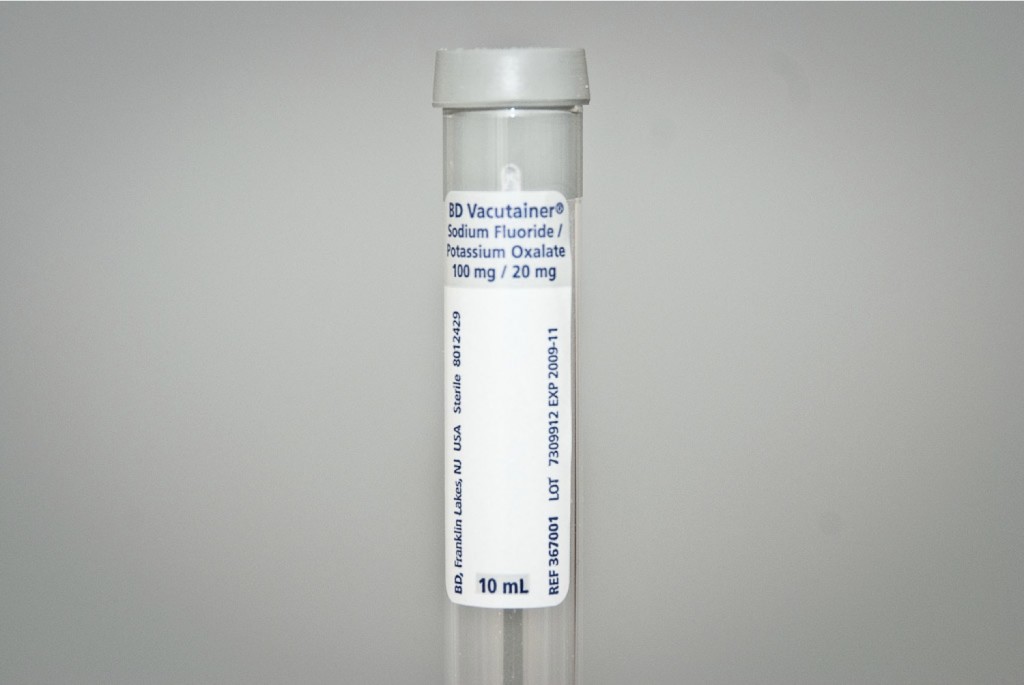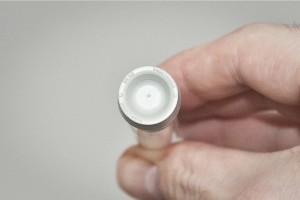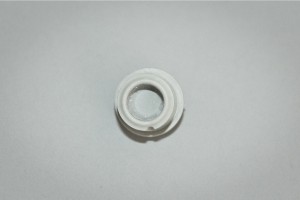So you have a case where the state used expired blood tubes and they want to perform analytical chemistry for either Drugs of Abuse testing or ETOH testing. So what’s the big deal about that????
Well I am so glad that you asked….
Simple. Unlike what most people think it has nothing to do with the inorganic salts contained inside because the NaF and potassium oxalate remain stable in perpetuity. The expiration of the tubes surrounds the BD Vaccutainer warranty on the vacuum seal on the septa. If for example, the tube bears an expiration date of 2/10 then it is warranted to have the necessary pressure via evacuated vacuum pressure to fill to designated volume +/-1% (which in our case is typically designed for a 10ml draw so between 9 and 11ml) until the last day of February 2010. After that date, BD Vaccutainer does not warrant the seal of the septa and the vacuum pressure.
So what does this mean?
First what doesn’t it mean…. Frequently undereducated, non-technically trained, non-credentialed machine operators who are decidedly not analytical chemists will say that we know there is no issue as the tube contained blood. They might even say that it contained within the 10% tolerance and therefore even if past warranty it is still suitable for purpose. A kind of “no harm, no foul approach”.
The truth is that the opinion stated above is worth about as much as the imaginary degree in analytical chemistry that the machine operator has which is to day nothing.
3 major issues:
- Like most things in life, the integrity of the septa seal and the corresponding vacuum loss is not a binary concept (i.e., either gross failure or no failure), but rather a gradation along a spectrum of change in the integrity of the seal. So, therefore simply stating that we know there is no failure because we have collected blood within that 9 to 11 ml range is totally faulty logic. As one can easily imagine of a easy scenario that debunks this claim. Imagine the tube prior to expiration at full vacuum strength would collect 11 ml, but now with partial degradation only collects 9ml, then one can see a problem. It appears to have met the +/-10% but there has been and appreciable loss in the integrity of the seal manifested in the 9ml draw.
- If pressure can leak out (i.e., the integrity of the seal is compromised but not result in a gross failure), then “things” can get in. More technically stated, the introduction of Candida Albicans and exogenous alcohol production becomes a real potential issue. For a general discussion on the danger of Candida Albicans, I refer you to https://www.paduiblog.com/2010/01/articles/dui-testing/what-pacman-and-inflated-and-incorrect-blood-alcohol-content-results-have-in-common/ . Most crime labs do not perform a simple bacteria culture to rule in or rule out Candida Albicans. The introduction of Candida Albicans into the sample combined with a lack of proper refrigeration and also either an insufficient amount of the anti-glycotic agent (NaF) or a non-homogenized mixture of the anti-glycotic agent (NaF) (i.e., it is not properly inverted) may result in exogenous ETOH production due to petrification.
- Protocols exist for a reason. Expiration dates are not arbitrary. While 9 out of 10 times, you may get away with drinking milk past the date of expiration (which is an expression of how long the manufacturer of the milk warrants that the preservatives added into the milk will prevent curdling of the milk). There is that 10th time. Therefore, I prefer not to serve past expiration date items to my family. If I am not willing to so serve past expiration date items to my family, I will not likewise allow the power of the government to allow the police officers or Troopers to be rewarded for negligence, laziness or sub-standard actions.






Amanda Bynum says:
Thanks for this post McShane–very informative!
Justin J. McShane says:
You are welcome. Thanks for stopping by. I know you to be a top-notch lawyer who litigates these issues all of the time. So, your complement means a lot. Please consider trying to answer our forensic science geek of the week question.
Steven M. Sabatier says:
Dear Justin,
I am a student in medical school. We are practicing blood draws. I was just informed that we utilize expired Blood Tubes and therefore may have to try a different BT if the current tube has lost its vacuum.
I wonder why they are providing expired blood tubes for us? (to save cost perhaps) I wonder what the risk are and if the risk is worth that much cost saved?
RESOURCES:
Who, How, Where do i learn more about this. I am in Tempe, AZ.
Any other advice?
Thank you,
steven m. sabatier
Justin J. McShane says:
Steven,
Thanks for stopping by and posting. With respect to your practicing blood draws in med school on expired tubes, it makes me also wonder to what end?
The tubes themselves are not expensive when bought by hospitals in bulk.
One of the common problems that can happen in a hospital when it comes to venipuncture (perhaps more frequently in the case of non-trauma pulls) is that the tubes and/or the kits that contain the tubes are mixed together not by lots but altogether.
It’s kind of like milk at the market. There is a reason why when they re-stock the milk, they stock from the back so that the milk with the nearest expiration is chosen by the average consumer. the frequency of selecting an expired milk container is lower if this procedure is followed. If they stocked from the front, then it is conceivable that by the time the natural progression of selection of milk occurs in conjucntion wiht this “stock from the front” progression that in the back there would be expired milk. If there is a run on milk, such as with a snow storm, then the incidence of a consumer getting expired milk is much higher.
Hospitals, in my experience, particularly for forensic related matters for legal blood do not “stock form the back”. In fact, I have found the opposite. This is how the problem manifests.
Just as I chose not to serve my family expired milk, we should not accept expired blood tubes.
Great question. Thanks.
Phil says:
Mr. McShane:
I am a second year law student at the Paul M. Hebert Law Center of LSU. I work for a criminal defense attorney, and we are presently working on a case dealing with this very issue. Can you recommend an expert that will make the same assertions as you have made above?”
Justin J. McShane says:
Thank you for the comment. Please feel free to contact me off-line at justin@themcshanefirm.com
Tom P says:
My school is providing also expired needles to use on students. I’ve lost faith in the school’s integrity.. any way I can get my money back?
Trudy Brieger says:
Right after wherever you might be having your details, however good matter. We should spend some time mastering a lot more or even understanding more. Many thanks for great data I had been seeking this data for my vision.
Pavel Tsinberg says:
How is the vacuum in the tubes tested?
Carlos Rivera says:
I am fighting a dui case was arrested April 2013 which has a blood tube expired! Expiration date on tube was Feb 2013…My attorney argue title 17 and use “Hunter vs State” case to dmv hearing but said that a blood tube doesn’t affect the results so my license got suspended? Now I have my court date on Jan 14th 2014 but my attorney is trying to reduce my case to a reckless driving! Instead of arguing title 17! What can I do to win this?? Any advise will help Thank you….